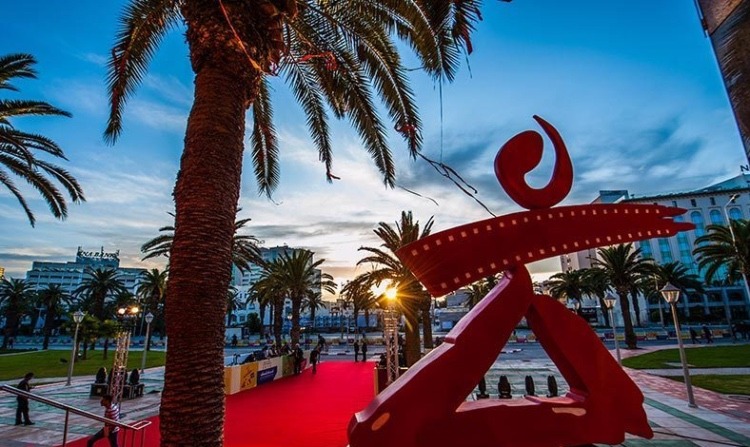Arab countries are flooded with talent that ranges from directors to actors. Because there is so much potential throughout the Middle East, it can be difficult to highlight the talent and truly offer it the chance they deserve. However, over the past couple of years, one of the things that have been lending a helping hand to young filmmakers and actors, underscoring their forte is film festivals. Film festivals provide young talents the avenue to share their creative stories, production, and narratives with the world. As festivals are quite influential, they have become one of the core reasons for putting a young talent on the map. Here are some of the said festivals that were a big stepping stone for actors and filmmakers.
Carthage Film Festival – Tunisia
The Carthage Film Festival (CFF), founded by Tunisian film critic Tahar Cheriaa, was a cooperative endeavor with the Tunisian Ministry of Culture. The Festival was founded in 1966 and takes place in Tunis, making it the oldest biennial event of its sort in Africa and the Middle East. CFF’s main goal was to promote Sub-Saharan African and Arab cinema, fostering and reinforcing North-South conversation by providing a meeting place for filmmakers and viewers of all origins. The festival screens more than 70 films every two years and the winners of the several competitive sections get prizes and trophies from the CFF. That being said, Carthage Film Festival is a prominent festival that is considered Tunisia’s premier biennially cultural event.
At the 32nd edition of the Carthage Film Festival, “Feathers,” the film that generated a stir in Egyptian and Arab cultural film circles after its screening at the El Gouna Film Festival, received four major prizes, including the Golden Taint, the festival’s highest prize. It also won Best Screenplay for Ahmad Amer and Omar El Zouhairy, as well as Best Female Performance for Demyana Nassar, the lead actress.
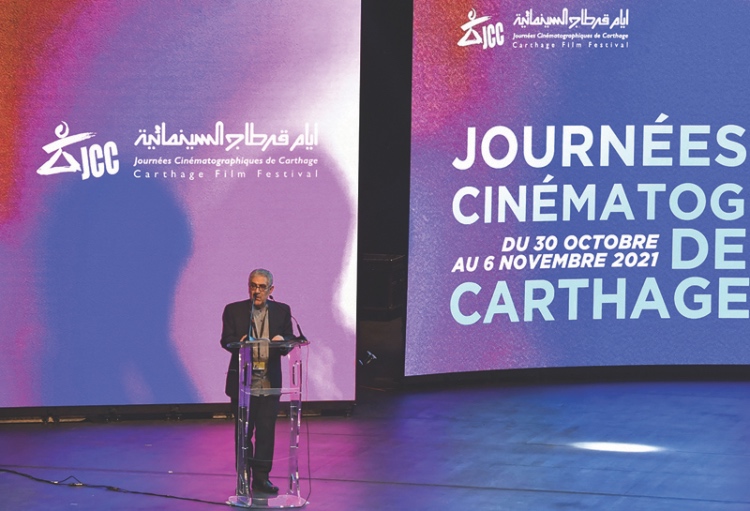
On October 30, 2021, Ridha Behi, director of Tunisia’s Carthage Film Festival, gives a speech at the opening ceremony of the 32nd edition of the film festival in Tunis, Tunisia’s capital.
El Gouna Film Festival – Egypt
The first edition of the El Gouna Film Festival (GFF) was held in 2017, and the festival has grown in size each year since then. This festival has had five editions all taking place at the resort town of El Gouna, located on the Red Sea, with the sixth set to take place from October 13 to 21, 2022. It is worth mentioning that GFF’s fifth edition marked the inauguration of its first El Gouna Green Star Award, the jury members for this competition included Egyptian actress Arwa Gouda, Kayvan Mashayekh, and Rana Najjar.
However, one must not forget about the important movies that featured the careers of some directors. Thus, “Yomeddine”, directed by Egyptian-Austrian filmmaker Abu Bakr Shawky, was a film that drew a lot of attention during the second edition of the festival. Beshay, a leprosy-free Egyptian, decides to leave the leper colony and start on a journey with his apprentice Obama to discover why his father never followed through on his vow to return. The film was also selected for the 2018 Cannes Film Festival’s Official Competition, where it earned the François Chalais Prize. Shawky was a first-time feature picture filmmaker who collaborated with a first-time producer and cast non-actors, one of whom is a leper. None of them are easily marketable in Egypt’s tight-knit network of producing tycoons and hungry cinema owners, he understood. For years, this has meant that new and unknown filmmakers, who are already competing against their commercial rivals, have had a difficult time finding producers or cinemas prepared to take a chance on their work. Shawky, on the other hand, overcame this obstacle, and his future looks bright!

Cairo International Film Festival – Egypt
Every year in Cairo, at the Cairo Opera House, the Cairo International Film Festival (CIFF) honors filmmakers from Egypt and around the world. This festival serves as a forum for filmmakers, artists, producers, actors, directors, and authors to present their work and participate in the new light of Egypt’s film industry. When it first began, the film festival featured roughly 100 films from 33 different nations, and it has only grown since then. It lasts ten days and features a variety of international films screened at various locations. International Competition for Feature Films, International Competition for Digital Feature Films, Competition for Arab Films, New Arab Cinema, and Tributes are just a few of the categories of the festival. Interestingly, CIFF was founded in 1976 in honor of the late Egyptian screenwriter and critic Kamal El Mallakh, who had attended the Berlin Film Festival the previous year and yearned for a similar festival on Egyptian grounds.
Dhaffer L’Abidine, a Tunisian actor and former professional football player, made his film festival debut with a film that he didn’t star in this time, but instead directed for the first time! “Tomorrow” (Ghodwa) tells the story of Habib and his 15-year-old son from a previous marriage, who are pulled together by Habib’s failing health. Habib’s political history during Tunisia’s dictatorship is having a negative impact on his present. The roles are flipped, and Ahmed is responsible for protecting and keeping his father safe. Consequently, the FIPRESCI Prize was given to “Tomorrow” (Ghodwa) by L’Abidine at the 43rd Cairo International Film Festival, which will definitely give L’Abidine the opportunity to venture through directing and create more fascinating movies.
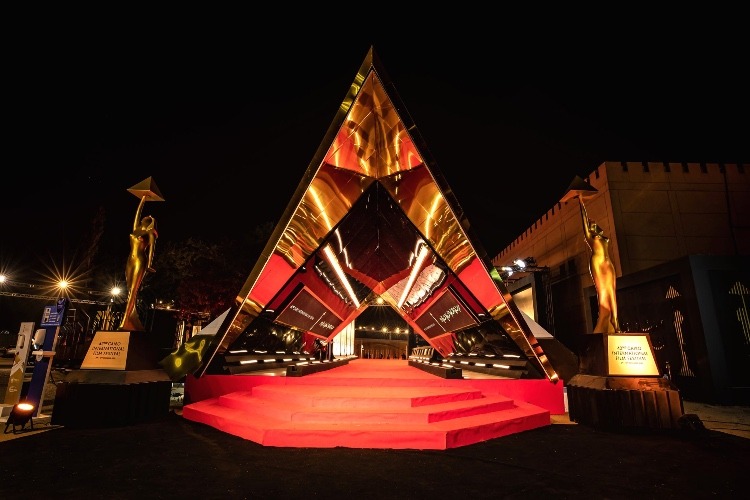
Rabat International Author Film Festival – Morocco
The Rabat International Author Film Festival (FICAR) aka (Festival International du Cinema D’Auteur de Rabat) is held in Rabat, Morocco and is devoted to the entire film experience, as well as the actual art and thinking that goes into making films in all of their forms. This festival emphasizes films that transcend stereotypes and integrate a feeling of urgency, as well as personal writing about humanity in all of its manifestations. Thus, the FICAR’s mission is to bring people into contact with films, authors, and the general public. It’s a festival that considers itself daring and shows the true nature of free expression that should be present throughout films.
“Dressage”, directed by Iranian director Pooya Badkoobeh, received a lot of attention at the FICAR in 2019, winning the best actress award for Negar Moqaddam and the best screenwriter award for Hamed Rajabi. Some critics remarked that this film was a ‘genuine piece of art,’ and it told the narrative of Golsa and her companions robbing a corner store. However, they are disappointed to discover that they forgot to take the security camera film when appraising the robbery. One of them must go back to the crime scene to recover it. Golsa receives the vote and valiantly completes the assignment. Her friends’ actions cause her to reflect, and she conceals the hard drive. This prize will undoubtedly pave the door for new projects in which Moghaddam will flourish and lead new projects.
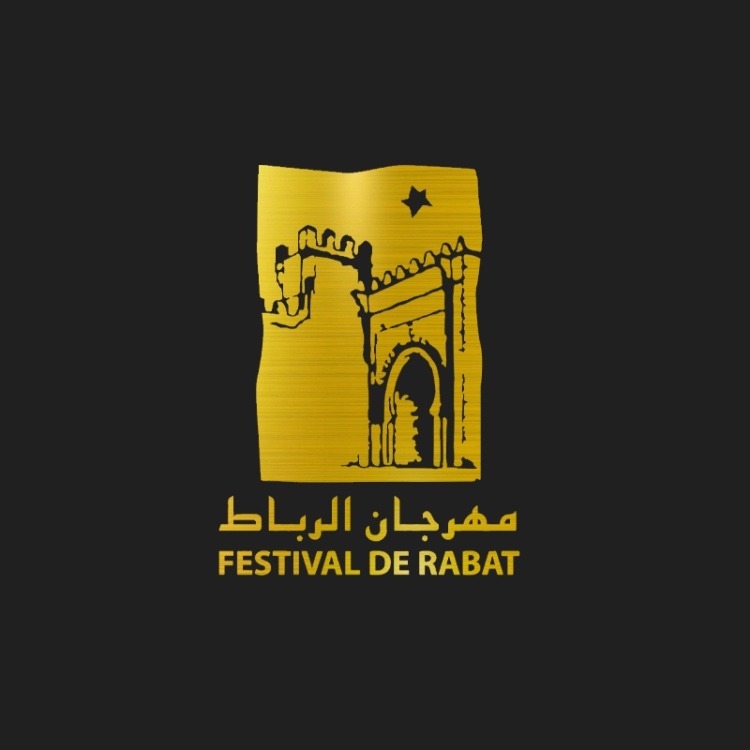
Marrakech International Film Festival – Morocco
The Marrakech International Film Festival, held in Marrakech, Morocco, was founded in 2001 by King Mohammed the sixth to promote Moroccan culture and the film industry. The Marrakech International Film Festival has become a crossroads where national and international actors, producers, filmmakers, and directors gather every year to renew the dialogue between talents and intellects, encourage diversity, and build bridges between different cultures and countries. Thus, the Festival has become a legendary event in the film industry, and Morocco is now a preferred location for major foreign film productions. The Marrakech International Film Festival’s tributes, seminars, audio description films for the visually impaired, and projections on the main square of Jemaa El Fna have all contributed to making it a place where dreams, art, and vision coexist in peace.
In 2019, “Akher Zeyarah” a movie by Mohammed Alhamoud, won the Prix du Jury prize as the movie featured an intricate story about Waleed and his adolescent son, a middle-aged father, Nasser, who receives news of his father’s serious illness. He turns in the direction of his rural hometown south of Riyadh. This is just the beginning for Alhamoud, and his career will flourish moving forward.
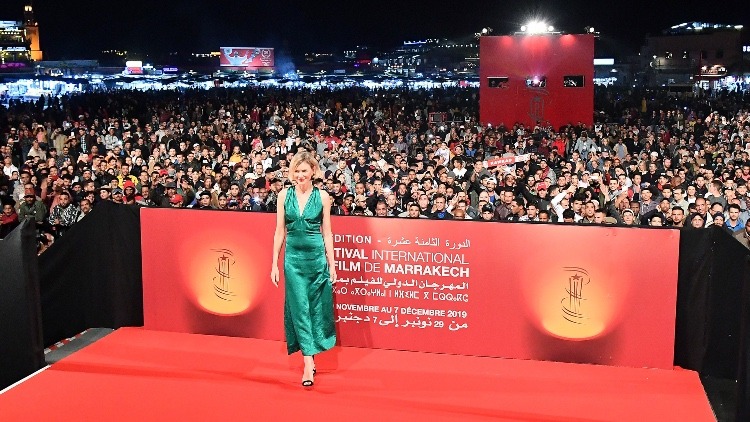
The industry appears to be improving as more and more artists get eager to share their works, become influenced, and encouraged to pursue their passions and display them in those film festivals. They are significant and integral to the region’s heritage, much as art and film must be maintained at any costs.


